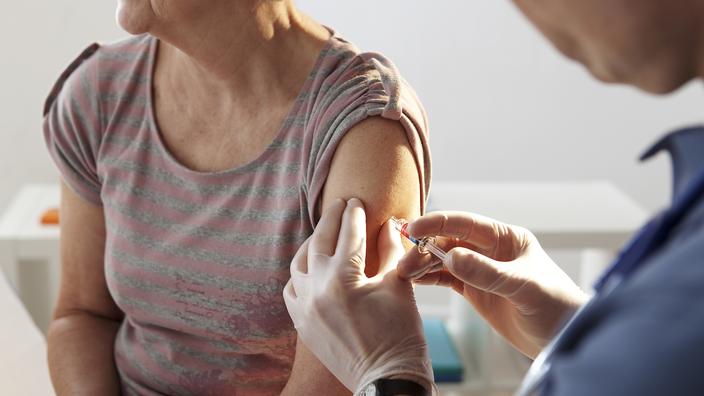The poorest countries will start receiving their first doses of Covid-19 vaccines between the end of January and mid-February, the World Health Organization (WHO) announced on Thursday.
Read also: How France is accelerating the pace of vaccination
Massive vaccination campaigns have already been launched in some of the richest countries, including the United States, Canada, countries of the European Union and the United Kingdom.
The Covax program has made agreements to procure two billion doses of vaccine, and the first doses will start arriving in the coming weeks, WHO vaccine officer Kate O'Brien said.
The international Covax program, launched by WHO with support from the Alliance for Vaccines (Gavi), aims to help ensure equitable access to future vaccines against Covid-19.
Covax aims to provide enough doses to immunize 20% of the population in each of the participating countries by the end of the year, with funding for these vaccines secured for the 92 poorest and somewhat richer countries in the world. .
Asked when low-income African countries could benefit from these vaccines, Kate O'Brien said during a debate organized by the WHO on the internet that Covax
"had access to more than two billion doses of vaccines "
.
"We will start delivering these vaccines probably towards the end of January or if not, certainly in the beginning or mid-February,"
she added.
21 vaccines have reached final stage, WHO says
The WHO granted the Pfizer-BioNTech vaccine on December 31, its first emergency approval since the start of the Covid-19 pandemic, thus making it easier for countries wishing to use the vaccine quickly.
According to the WHO, 63 candidate vaccines have already been tested in humans and 21 of them have reached the final stage of mass testing.
In addition, 172 other vaccine candidates have been developed in the laboratory for further human testing.
"There is really a vast reservoir of
potential
vaccines"
, which the WHO is studying for possible approval in the coming months, said Kate O'Brien, adding that 15 manufacturers had already contacted the WHO by proposing to massively produce the doses.
However, it is premature to predict how long vaccinated people would be immune to Covid-19, she said.
Read also: Covid-19: according to South Africa, its variant is not more dangerous than the British
Regarding the new variants of the virus, initially detected in the UK or South Africa, she said there was no evidence that current vaccines would not be effective, and these vaccines can be adapted to these variants if necessary.
While stressing that studies continued to be carried out on this point, she affirmed that "the changes observed in these variants do not seem likely to modify the impact" of the vaccines.

